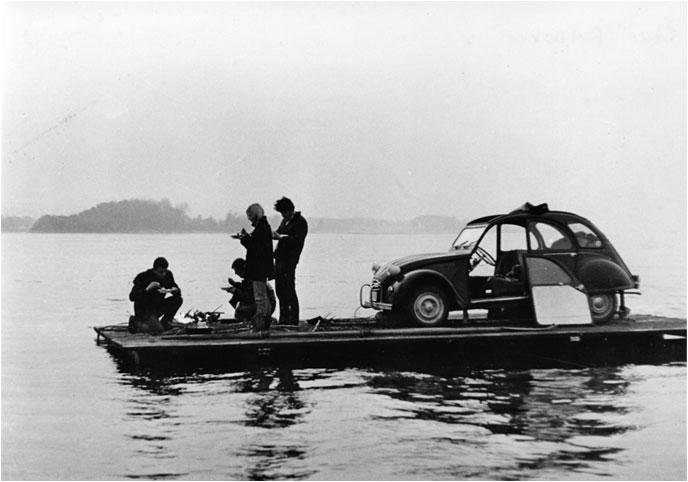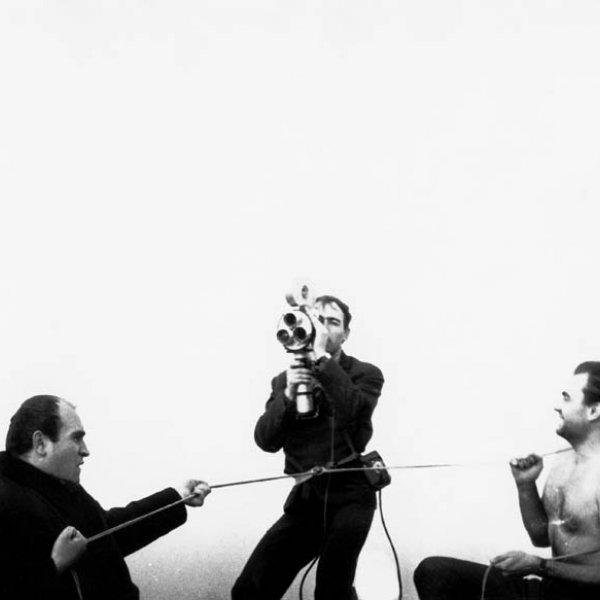Želimir Žilnik: A Maverick of Yugoslav Cinema
When it comes to Yugoslav cinema, Želimir Žilnik is a name that stands out from the rest. The maverick director has been making thought-provoking films for over fifty years, exploring a range of social and political issues in his work. From his early documentaries to his more recent fiction films, Žilnik’s unique approach to storytelling and his willingness to push boundaries have earned him a place in the pantheon of great Yugoslav filmmakers. In this article, we will delve into the works of this fascinating director and explore what makes him such an important figure in the world of cinema.
When it comes to Yugoslav cinema, Želimir Žilnik is a name that stands out from the rest. The maverick director has been making thought-provoking films for over fifty years, exploring a range of social and political issues in his work. From his early documentaries to his more recent fiction films, Žilnik’s unique approach to storytelling and his willingness to push boundaries have earned him a place in the pantheon of great Yugoslav filmmakers. In this article, we will delve into the works of this fascinating director and explore what makes him such an important figure in the world of cinema.

Introduction to Želimir Žilnik – gives an overview of who Žilnik is and his impact on Yugoslav cinema
Želimir Žilnik is a prominent Serbian director and screenwriter who has played a major role in shaping Yugoslav cinema. He is known for his unique and unconventional approach to filmmaking, often blurring the lines between documentary and fiction. Žilnik’s films tackle complex social and political issues, giving voice to marginalized communities and shedding light on the struggles of ordinary people. His work has been recognized both nationally and internationally, winning numerous awards at prestigious festivals like Cannes and Berlin. Žilnik’s impact on Yugoslav cinema has been profound, inspiring a new generation of filmmakers and cementing his place as one of the most influential figures in the history of Balkan cinema.
Early Career – discusses Žilnik’s early years and how he got his start in the film industry
Želimir Žilnik, a prominent Yugoslavian filmmaker, had an early start in the film industry when he moved to Novi Sad, Serbia, and started working at the Radio-Television Novi Sad (RTNS) in the 1960s. Žilnik’s first short film, “The Kiosk,” was produced in 1963, and it won the Golden Leopard award at the Locarno Film Festival. This recognition paved the way for his future success in the film industry. Throughout his early career, Žilnik’s films were known for their commentary on social issues and their unique portrayal of everyday life in Yugoslavia. His work became an inspiration for many young filmmakers of his generation, making him a prominent figure in Yugoslavian cinema.
The Black Wave – explains the movement Žilnik was a part of in the 1960s that challenged traditional filmmaking in Yugoslavia
The Black Wave was a rebellious movement that emerged in the 1960s Yugoslavia, challenging the conventional cinema of the time. Želimir Žilnik was one of the prominent filmmakers who actively participated in this movement, which aimed to bring a fresh approach to storytelling and filmmaking techniques. The Black Wave filmmakers adopted a more realistic style, focusing on the everyday struggles of the working class and marginalized communities. Žilnik’s films, such as “Early Works” and “The Unemployed,” showcased the lives of ordinary people and challenged the established norms of the industry. The Black Wave is considered a significant movement in the history of Yugoslav cinema, and Žilnik’s contribution to this movement is widely acknowledged.

The Cannes Film Festival – highlights Žilnik’s success at Cannes and how it helped put Yugoslav cinema on the map
The Cannes Film Festival has been a staple event in the film industry for years. In 1969, Yugoslavian director Želimir Žilnik made history by winning the prestigious Palme d’Or award for his film “Early Works”. This success not only put Žilnik on the map in the international film scene but also helped to shed light on the Yugoslav cinema industry as a whole. Žilnik’s use of satire and unconventional storytelling techniques were praised by critics and audiences alike, and his win at Cannes helped to showcase the unique talent and creativity of Yugoslav filmmakers. The impact of Žilnik’s success at Cannes can still be felt today, as Yugoslav cinema continues to influence and inspire filmmakers around the world.
Political Themes – discusses how Žilnik’s films often dealt with political and social issues in Yugoslavia, such as workers’ rights and immigration
Želimir Žilnik’s films are known for tackling political and social issues prevalent in Yugoslavia during his time. His films often delved into the struggles faced by the working class, including their rights and working conditions. One of his acclaimed films, “Early Works,” portrays the story of a group of young people who struggle to find work and a sense of purpose in a society that is not always accommodating. Additionally, Žilnik’s films also explored the topic of immigration and the challenges faced by those who migrated to Yugoslavia in search of a better life. Through his films, Žilnik shed light on crucial issues and sparked important conversations that continue to resonate today.
Collaborations – talks about the various artists and filmmakers Žilnik worked with throughout his career
Throughout his illustrious filmmaking career, Želimir Žilnik has collaborated with many talented artists and filmmakers. From the early days of his career in Yugoslavia, to his more recent work in independent cinema, Žilnik has worked with a diverse range of creatives to bring his unique vision to life on the silver screen. Some notable collaborators include actors Pavle Vuisić and Mira Furlan, cinematographers Tomislav Pinter and Goran Trbuljak, and film editors Olga Skrigin and Katarina Stojanovic. With each collaboration, Žilnik has pushed the boundaries of Yugoslav cinema, creating unforgettable films that have left a lasting impact on audiences around the world.

Return to Serbia – examines Žilnik’s return to Serbia in the 1990s and how his films changed in response to the war
“Return to Serbia” is a compelling exploration of Želimir Žilnik’s return to Serbia during the tumultuous 1990s, a time marked by the outbreak of war and the disintegration of Yugoslavia. The documentary examines how Žilnik’s films shifted in response to the conflict, taking on a more urgent and politically charged tone. As a prominent figure in Yugoslav cinema, Žilnik’s work provides a unique window into the social and political realities of the region during this time. “Return to Serbia” is a must-see for anyone interested in the intersection of cinema and history in Yugoslavia.
Documentary Filmmaking – discusses Žilnik’s shift towards documentary filmmaking and why he found it important
In the late 1980s, Želimir Žilnik shifted his attention towards documentary filmmaking. This was a conscious decision on his part as he found it important to capture real-life situations and stories of people around him. By showcasing the struggles and hardships faced by ordinary people, Žilnik believed that he could create a more authentic and relatable form of cinema. His documentaries often tackled issues of poverty, inequality, and social justice, highlighting the harsh realities of life in Yugoslavia. Through his shift towards documentary filmmaking, Žilnik cemented his position as a pioneer of socially engaged cinema in Yugoslavia.
Legacy – explores how Žilnik’s work has influenced contemporary filmmakers and why his films are still relevant today
Legacy is an important aspect to consider when analyzing the work of Želimir Žilnik, as his films have significantly influenced contemporary filmmakers. Žilnik’s ability to blend documentary and fiction filmmaking techniques, and his socially conscious themes, have paved the way for a new generation of filmmakers to tell stories that reflect the realities of their societies. His films are still relevant today, as they address issues that are still prevalent in modern-day society. The impact of Žilnik’s work on Yugoslav cinema cannot be overstated, and his films continue to inspire and inform filmmakers around the world.
Conclusion – sums up the importance of Žilnik’s contribution to Yugoslav cinema and encourages readers to seek out his films
In conclusion, the contribution of Želimir Žilnik to Yugoslav cinema cannot be overstated. His unique perspective, insightful storytelling, and unwavering commitment to social justice have made him one of the most important figures in the history of Yugoslav cinema. If you’re a true cinema lover, then you owe it to yourself to seek out his films. From the witty and charming humor to the deeply moving drama, Žilnik’s films have something for everyone. So do yourself a favor and experience the magic of Želimir Žilnik’s work today!
For more information about Želimir Žilnik Yugoslav Cinema, including movie details, cast information, etc..
check out the filmaffinity page.



